
The soundtrack of summer should always include a little Beach Boys, especially when a song like Kokomo asks, "Bermuda, Bahama, come on pretty mama... Key Largo, Montego, baby why don't we go?"
Yes indeed, why don't we go? Especially if the beachcombing includes long walks on magical, naturally pink (yes, pink) sand.
Pink sand beaches are fairly uncommon and flung worldwide among such exotic locales as Crete, Indonesia, the Philippines, Spain and Tahiti. But we've found some blushing beauties that offer attainable adventure for more pragmatic bucket lists.
WHAT MAKES PINK SAND PINK?
Sand is eroded quartz, so what gives a pink sand beach its incomparable color? The answer lies in microscopic coral insects, known as Foraminifera, (forams for short) who extend pseudopodia or false little feet out of tiny holes in the red and pink shells known as tests, to attach themselves to coral and to feed.
If fossil lovers are going hmm, this sort of behavior sounds familiar, they'd be right. Forams rank in the same phylum as the brachiopods whose Paleozoic Era marine fossils are commonly collected today. Like those ancient forbears, forams are not quite animals (because they don't have bodies divided into multiple cells) and not quite plants (because they don't photosynthesize), instead straddling freshwater and saltwater environments and serving a key role as primary producers.
Primary producers, the National Oceanic and Atmospheric Administration (NOAA) says, represent the foundational base of the aquatic food chain by synthesizing their own energy without the need to eat, and include algae, bacteria and phytoplankton. Scientists estimate there are more than 4,000 species of forams, with the majority (90 percent) living at the bottom of the ocean and growing in sand, seagrass and other benthic substrates.
This story is from the July 2023 edition of Rock&Gem Magazine.
Start your 7-day Magzter GOLD free trial to access thousands of curated premium stories, and 9,000+ magazines and newspapers.
Already a subscriber ? Sign In
This story is from the July 2023 edition of Rock&Gem Magazine.
Start your 7-day Magzter GOLD free trial to access thousands of curated premium stories, and 9,000+ magazines and newspapers.
Already a subscriber? Sign In
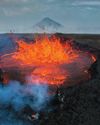
THE BRIGHT SIDE OF VOLCANIC ROCK
As a mineral resource, volcanic rock is decidedly short on glamour.
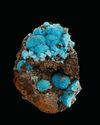
The Other Copper Minerals
12 Lesser-known Collectible Species

MINERAL COLLECTING -AND ROCK & GEM
Evolving Together FOR 54 YEARS
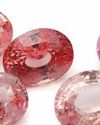
Gemstone Trends
A Look Back at 2024 & What to Expect in 2025
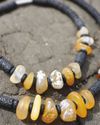
How to Make a GEM BEAD NECKLACE
No Lapidary Experience Needed!
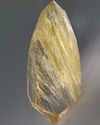
Framing Nature's Art
Faceting Rutilated Quartz for Beginners
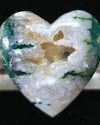
BEDAZZLED BLUE SEAM AGATE
More than several centuries ago, mining was the profession most often seen as befitting of men.
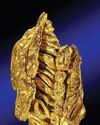
ROCK & GEM FIELD GUIDE:
Spinel is a captivating gemstone with a rich history of being mistaken for gems like ruby and sapphire.
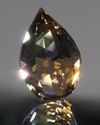
SNAKE SCALE DROP 1.5:1
This Faceting Focus is revisiting the briolette gemstone design because of its popularity with independent and hobby gemstone faceters.
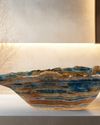
STONE CHIC
How Earth-Inspired Decor Brings Comfort to our Home